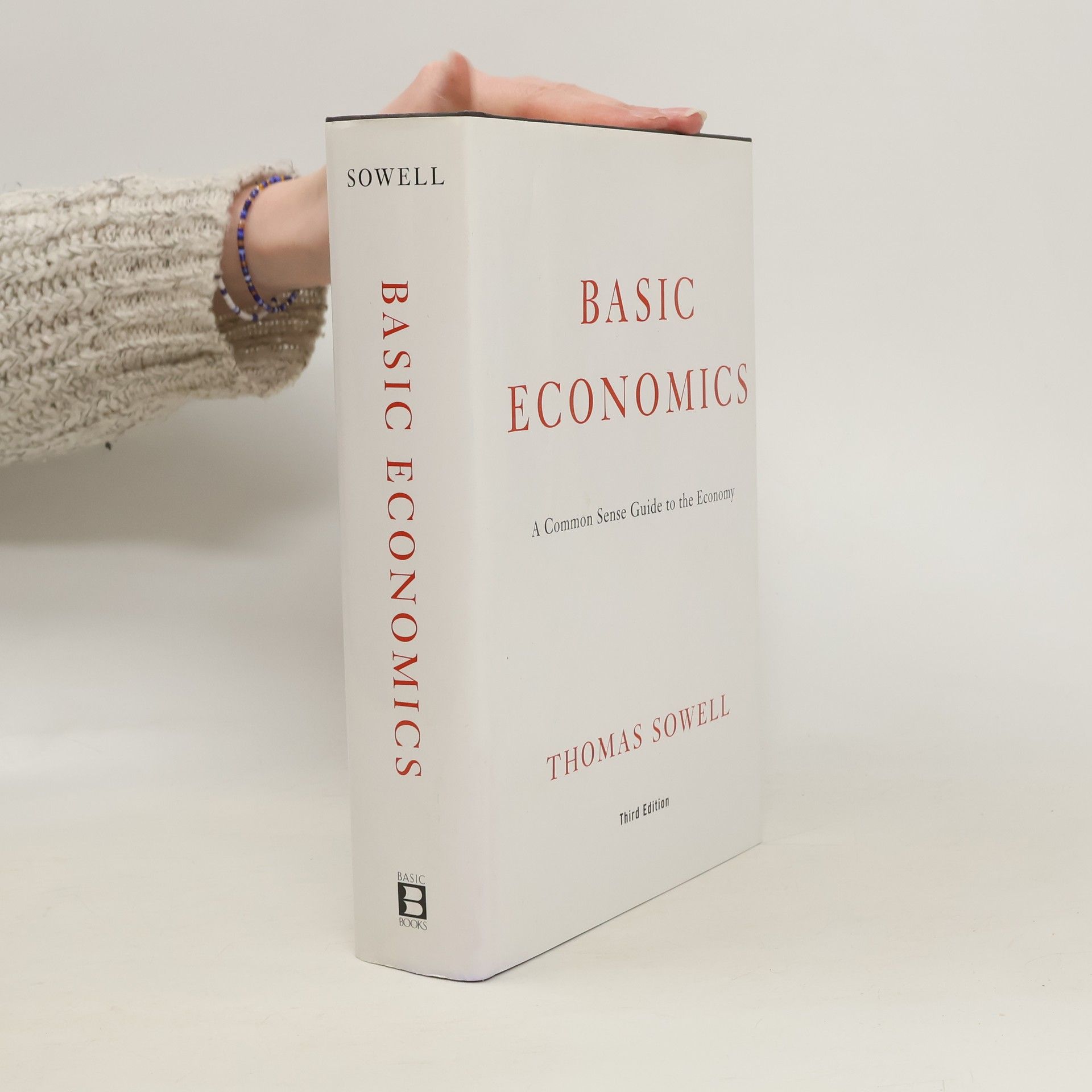Social Justice Fallacies
- 256 pages
- 9 hours of reading
America's leading conservative economist draws on extensive data to dismantle the progressive agenda
Thomas Sowell is an American economist and social commentator, known for his laissez-faire economic perspective. His extensive body of work incisively explores the intersections of history, economics, and political science. Through his analytical brilliance and accessible style, Sowell illuminates complex societal and economic issues. His writings prompt reflection on the foundations of economic policy and societal development.






America's leading conservative economist draws on extensive data to dismantle the progressive agenda
Prawdopodobnie nigdy w dziejach ludzkości intelektualiści nie odgrywali w społeczeństwie większej roli niż obecnie. Kiedy elity wytwarzające idee otoczone są licznym wianuszkiem osób, które rozpowszechniają owe idee dziennikarzami, nauczycielami, [] ustawodawcami, urzędnikami, sędziami oraz innymi przedstawicielami inteligencji ich wpływ na kierunek ewolucji społecznej może być znaczący, a nawet decydujący. [] Dużo wiemy na temat życiorysów oraz ideologii poszczególnych prominentnych intelektualistów, lecz systematyczne analizy istoty oraz roli intelektualistów jako grupy społecznej są nadal rzadko spotykane. Ta książka ma ambicje być taką właśnie analizą. Ma ambicje badać kierunek, w którym inteligencja prowadzi nasze społeczeństwo oraz ogólniej rzecz biorąc zachodnią cywilizację. [] przeznaczona jest dla czytelników skłonnych przyłączyć się do mojej podróży ku zrozumieniu intelektualistów czyli dość pokaźnej grupy ludzi żyjących wśród nas, których działalność może mieć i de facto ma niezmiernie istotny wpływ na poszczególne państwa, a nawet całą cywilizację. fragment
Die Untersuchung beleuchtet, wie Wissen individuelle und kollektive Entscheidungen beeinflusst und welche Bedeutung es für Freiheit sowie Effizienz hat. Dabei werden grundlegende Muster in Entscheidungsprozessen analysiert. Als frühes Werk des Autors bietet es wertvolle Einsichten und ist das erste, das ins Deutsche übersetzt wurde.
A leading conservative intellectual defends charter schools against the teachers' unions, politicians and liberal educators who threaten to dismantle their success
A searching re-examination of the assumptions, and the evidence for and against, current approaches to issues of economic and other disparities
[Sowell's] take on how culture, geography, politics and social factors affect how societies progressor don'twill rile those addicted to political correctness but leave everyone else wiser.-Forbes
A Common Sense Guide to the Economy
Never HIGHLIGHT a Book Again! Virtually all of the testable terms, concepts, persons, places, and events from the textbook are included. Cram101 Just the FACTS101 studyguides give all of the outlines, highlights, notes, and quizzes for your textbook with optional online comprehensive practice tests. Only Cram101 is Textbook Specific. Accompanys: 9780465022526 .
From one of Basic's bestselling authors, an incisive critique of the destructive role of intellectuals in shaping ideas about race.
Offering an insightful exploration of Marxist theory, this book serves as an accessible introduction to Karl Marx's writings. It blends clarity with intellectual depth, reflecting over 25 years of Thomas Sowell's research and analysis. Readers will gain a comprehensive understanding of Marx's philosophical and economic doctrines, presented in a way that is both engaging and thought-provoking.
Explains why fallacies abound in economic thinking and why they have such political staying power. This title describes the essential types of fallacies - the zero-sum fallacy, which assumes that one person's gain is another's equal loss; the 'fallacy of composition', the assumption that what is true of the part is true of the whole; and, more.